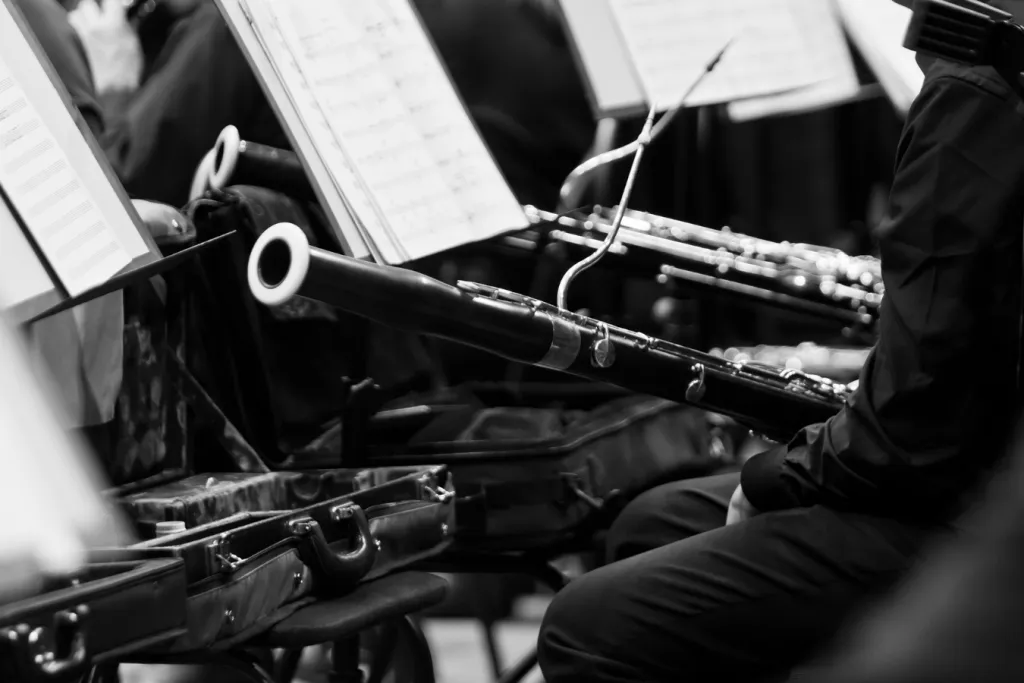Playing the bassoon is already a unique challenge, and if you have braces, you might be wondering:
👉 Will braces make it harder to play?
👉 Can I still develop a good embouchure with braces?
👉 What can I do to make playing more comfortable?
The good news? Yes, you can absolutely play bassoon with braces! However, it does require some adjustments and patience. This article will cover everything you need to know about playing bassoon with braces, including:
✔ How braces affect embouchure and playing
✔ Common challenges and how to overcome them
✔ Tips for reducing discomfort and improving tone
✔ How to adjust your playing technique
1. How Do Braces Affect Bassoon Playing?
Braces change the way your mouth feels and functions, which can affect your bassoon playing in several ways:
A. Changes to Embouchure
🔹 The double reed embouchure relies on firm but flexible lip pressure.
🔹 Braces can make it harder to form a proper seal around the reed.
🔹 Some players experience excess pressure on the lips, leading to discomfort.
B. Increased Sensitivity and Discomfort
🔹 Braces can cause soreness, especially after adjustments.
🔹 The inside of your lips may feel irritated from contact with the brackets.
🔹 The added metal can make it harder to control pressure on the reed.
C. Tone and Air Control Adjustments
🔹 Braces may alter the shape of your oral cavity, affecting air support.
🔹 You might need to adjust your embouchure to compensate for the extra structure.
🔹 Playing with braces may temporarily impact tone quality and endurance.
But don’t worry! With a few adjustments, you can still play comfortably and develop great technique.
2. Common Challenges and Solutions
Many bassoonists successfully play with braces. Here’s how to overcome common issues:
A. Lip Pain and Soreness
Problem: The brackets press against the inside of your lips, causing discomfort.
Solution:
✔ Use orthodontic wax on brackets to create a smooth surface.
✔ Apply lip protectors or silicone covers to minimize irritation.
✔ Stay hydrated and apply lip balm to prevent chapping.
B. Difficulty Forming an Embouchure
Problem: Your lips feel different, making it harder to form a proper embouchure.
Solution:
✔ Use more air support to compensate for minor embouchure changes.
✔ Keep your jaw relaxed and avoid excessive pressure on the reed.
✔ Play long tones daily to adjust to the new feel.
C. Changes in Tone Quality
Problem: Your sound may feel thin, airy, or inconsistent.
Solution:
✔ Strengthen your diaphragmatic breathing for steady air support.
✔ Experiment with reed placement to find a comfortable position.
✔ Play with a slightly looser embouchure to avoid excess pressure.
D. Braces Adjustments Causing Temporary Setbacks
Problem: After orthodontic adjustments, playing feels different again.
Solution:
✔ Be patient—your mouth needs time to recalibrate.
✔ Practice gentle buzzing exercises to help your lips adjust.
✔ Play shorter sessions on adjustment days and gradually build endurance.
3. Tips for Reducing Discomfort and Improving Playability
If you’re struggling with braces while playing bassoon, try these practical tips:
A. Adjust Your Embouchure Gently
✔ Avoid biting down too hard on the reed.
✔ Let your air do the work instead of relying on lip pressure.
✔ Use a lighter touch with the lips to reduce strain.
B. Experiment with Reed Strength
✔ Some players find softer reeds easier to control with braces.
✔ Others prefer medium reeds for better resistance and tone.
✔ Test different reeds to see what feels best for you.
C. Use Orthodontic Wax for Comfort
✔ Apply wax to sharp or protruding brackets to prevent irritation.
✔ Reapply as needed, especially during long practice sessions.
D. Practice with Lip Protectors
✔ Some players use silicone lip protectors for extra comfort.
✔ These can help reduce pressure on your lips and braces.
E. Focus on Air Support
✔ Your breath is your power source—use strong, steady air.
✔ Take deep, controlled breaths before playing.
✔ Practice long tones to build endurance and stability.
F. Play in Shorter Sessions at First
✔ If your lips feel sore, take frequent breaks.
✔ Gradually increase playing time as your mouth adjusts.
4. Will Braces Affect Your Long-Term Progress?
No! While braces may cause temporary challenges, they won’t stop you from improving. Many skilled bassoonists have played through orthodontic treatment and developed excellent tone and technique.
Here’s what to keep in mind:
✔ Your embouchure will adjust over time.
✔ Patience and consistency are key to overcoming challenges.
✔ Once your braces are removed, your playing will feel even easier!
If you’re planning on playing bassoon long-term, braces will only be a temporary phase in your musical journey.
5. What About Retainers?
After braces, you might need to wear a retainer, which can also affect your playing. Here’s how to handle it:
🔹 Fixed Retainers: These don’t affect embouchure much, so playing remains stable.
🔹 Removable Retainers: You may need time to adjust, but most players adapt quickly.
🔹 Tip: Practice both with and without your retainer if possible to maintain consistency.
Final Thoughts: Yes, You Can Play Bassoon with Braces!
Braces may change how your embouchure feels, but they won’t stop you from playing bassoon successfully. With the right adjustments, patience, and practice, you can continue to develop a strong tone and technique.
Key Takeaways:
✔ Yes, you can play bassoon with braces!
✔ Common challenges include soreness, embouchure changes, and tone adjustments.
✔ Solutions include using orthodontic wax, lip protectors, and breath support.
✔ Be patient—your mouth will adapt over time.
✔ Your playing will improve even more once braces are removed!
With these tips, you’ll be able to play comfortably and confidently, even with braces. Keep practicing, and don’t let orthodontics slow you down! 🎶

